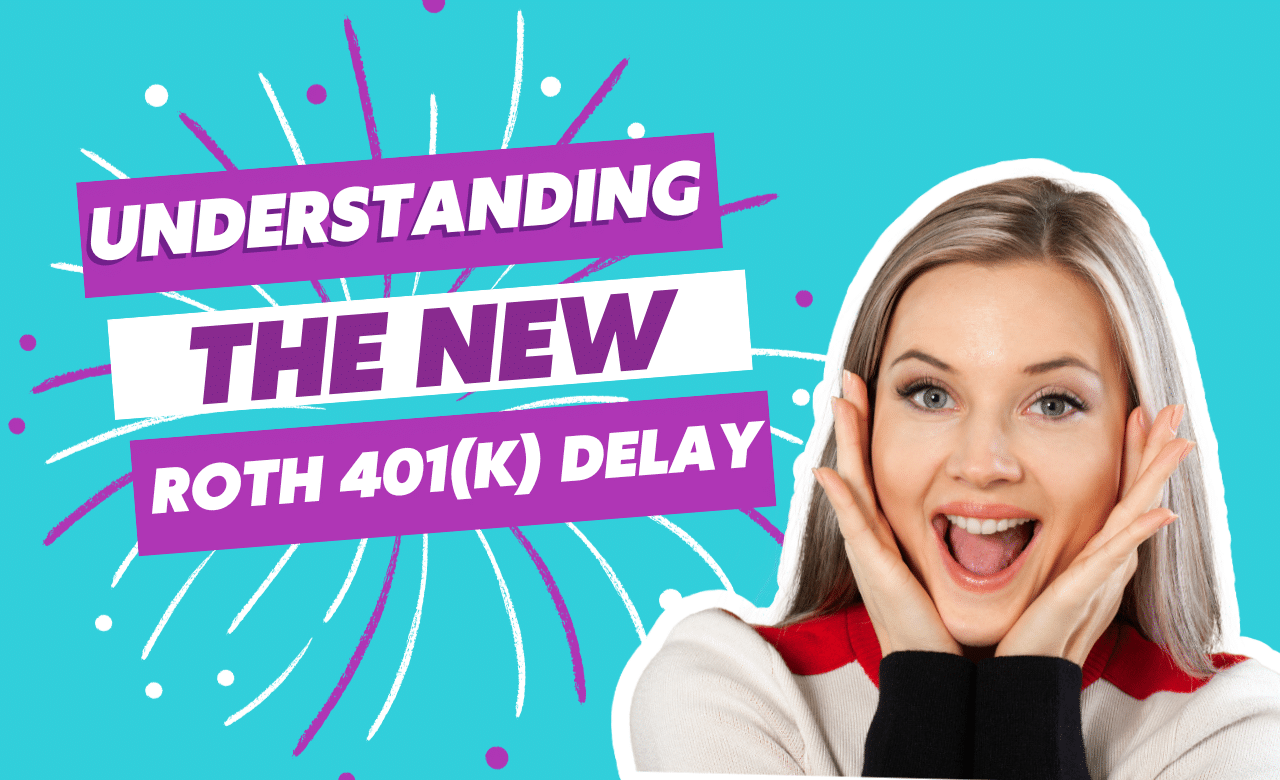Hey all! I’m Cindy, the Tax Manager here at Bette Hochberger, CPA, CGMA. Today I am going to discuss some new developments in the Roth 401(k) contributions rule by the IRS. So, here’s what you need to know!
The IRS has recently announced a delay in the implementation of new rules related to 401(k) catch-up contributions for certain high earners. This delay provides relief and additional preparation time for those affected by the forthcoming changes.
Background of the Roth 401(k) Contributions Rule
Concerns were raised over the proposed amendments to the rules related to catch-up contributions for 401(k) plans under the SECURE 2.0 Act. Initially made to be in effect from 2024, the amendments mandate that catch-up contributions from high-income earners must be made on a Roth (after-tax) basis. This signifies that taxes must be paid on these retirement savings during the years of contribution, typically higher earning years, allowing tax-free withdrawals upon retirement.
Specifics of SECURE 2.0
As per SECURE 2.0, individuals aged 50 and above, who have earned $145,000 or more in the preceding year, can make catch-up contributions to their employer-sponsored 401(k) account, but these additional contributions must be on a Roth basis, implying the usage of after-tax dollars. Consequently, these catch-up contributions are not eligible for tax deductions, unlike standard 401(k) contributions. This rule will not impact taxpayers earning $144,999 or less in a tax year.
Clarification and Delay in Implementation
Due to concerns over clarity and applicability, the initiation of this new rule witnessed a delay. It was observed that the SECURE 2.0 legislation lacked specific language, creating a situation where no participant could make catch-up contributions on either a pre-tax or Roth basis. Over 200 entities, including Fortune 500 companies and public employers, have requested a two-year postponement to 2026 for the new Roth catch-up rule. These entities expressed concerns over the feasibility of implementing the required administrative changes by the next year.
In response, the IRS, in August, granted an extension for the implementation of Roth catch-up contributions for high earners until 2026, providing respite to both plan sponsors and employers. The IRS has also made clear that individuals 50 or older can continue making pre-tax catch-up contributions in 2023, regardless of their income levels.
Implications for High Earners
This implies that if you are 50 or older, regardless of your income level, you can continue to make catch-up contributions on a pre-tax basis through your employer-sponsored retirement plan until 2026. However, post-2026, these contributions must be made on a Roth basis if your income is at or above the $145,000 threshold.
While this delay provides more time for adjustments, it’s important for individuals to start planning and strategizing their retirement contributions. Seeking advice from a reputable tax professional is highly recommended to optimize retirement savings while navigating the impending changes in contribution rules effectively.
Whether you are an individual contributor or a plan sponsor, staying informed and being proactive is key in adapting to the forthcoming modifications in Roth 401(k) contributions rules. Keep notes of the developments and consult your tax advisor to make informed decisions that align with your financial goals and retirement plans.









